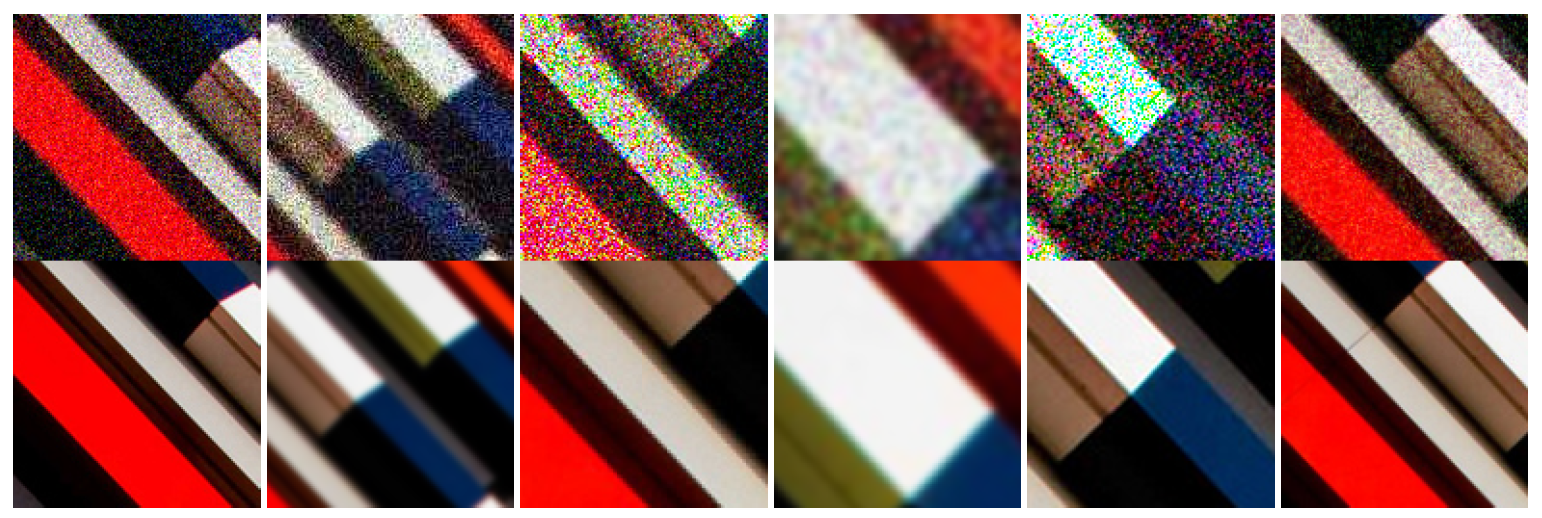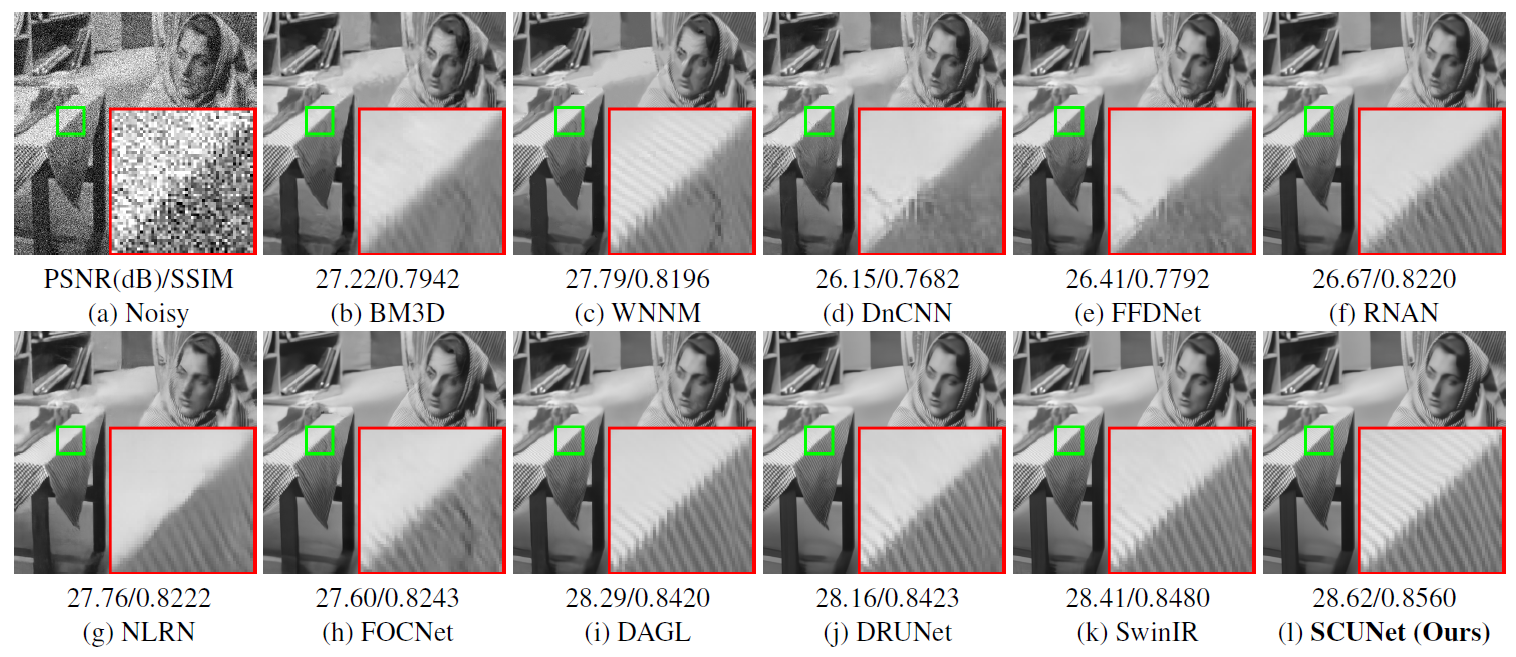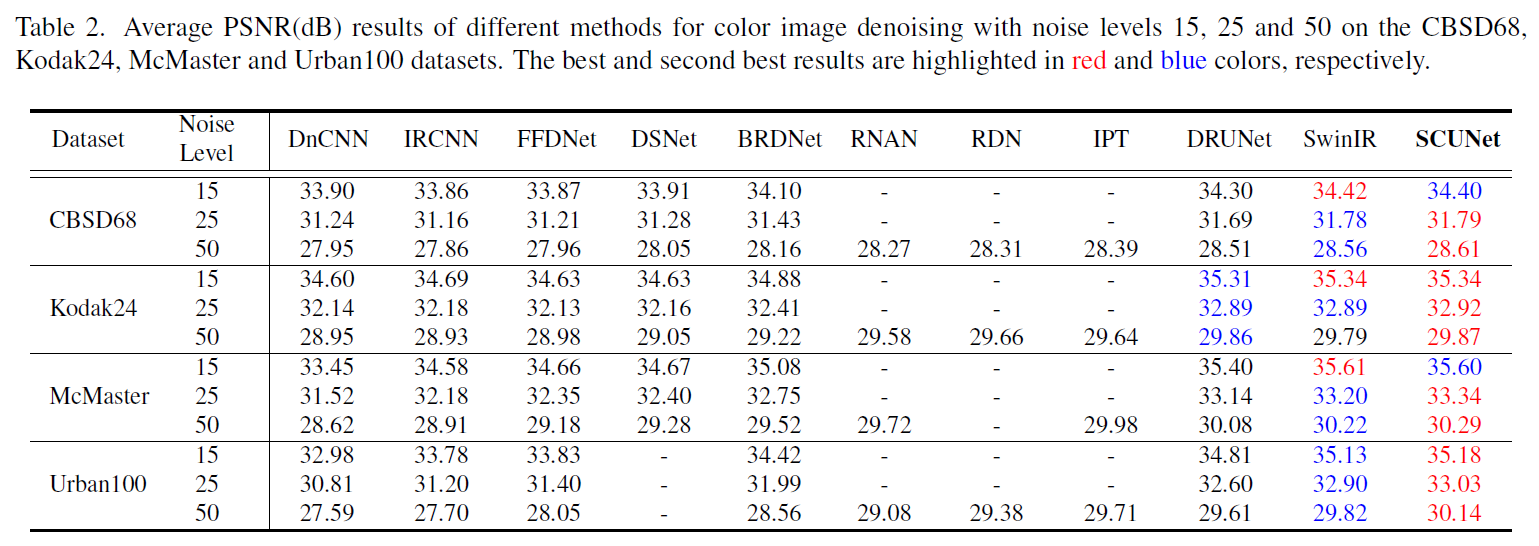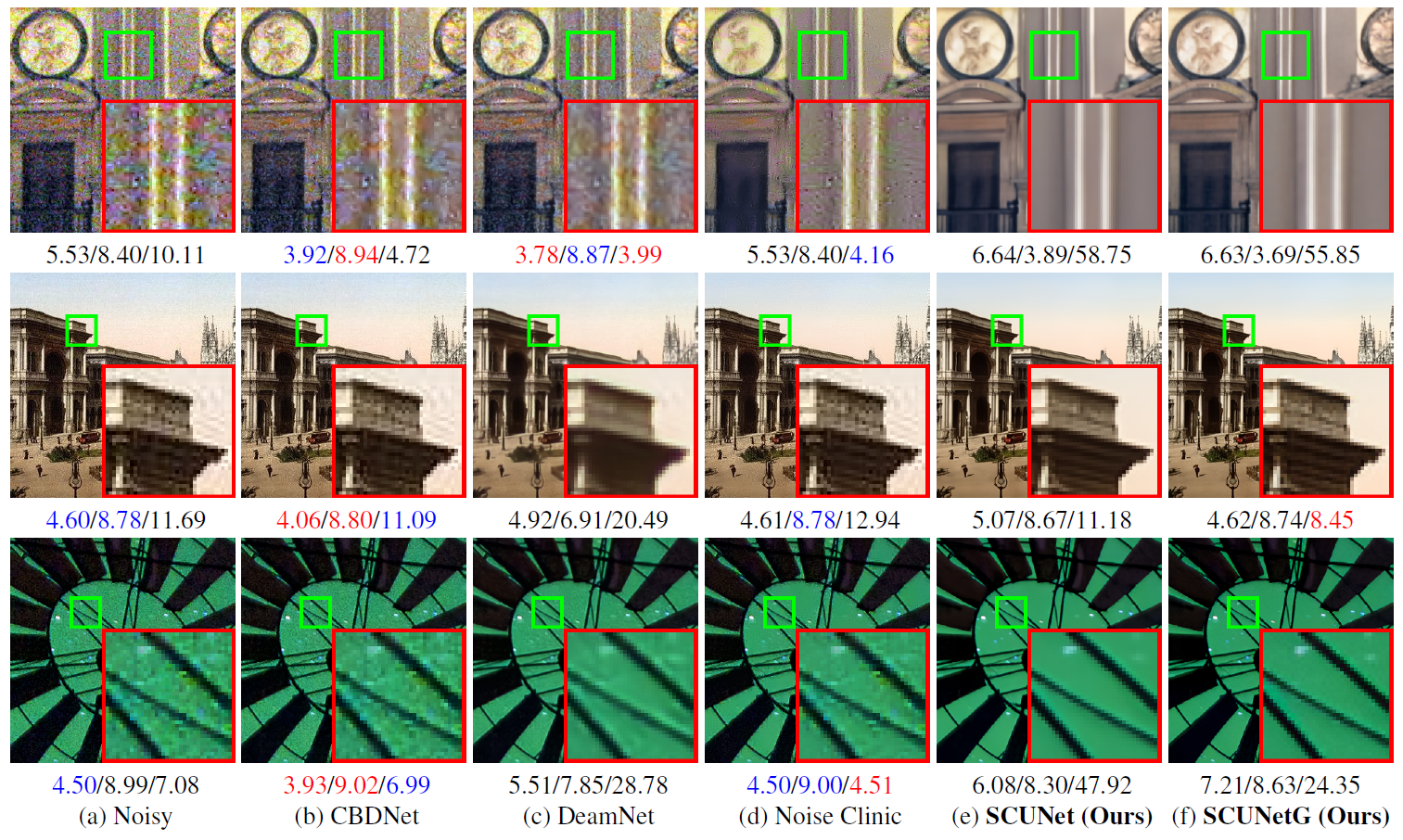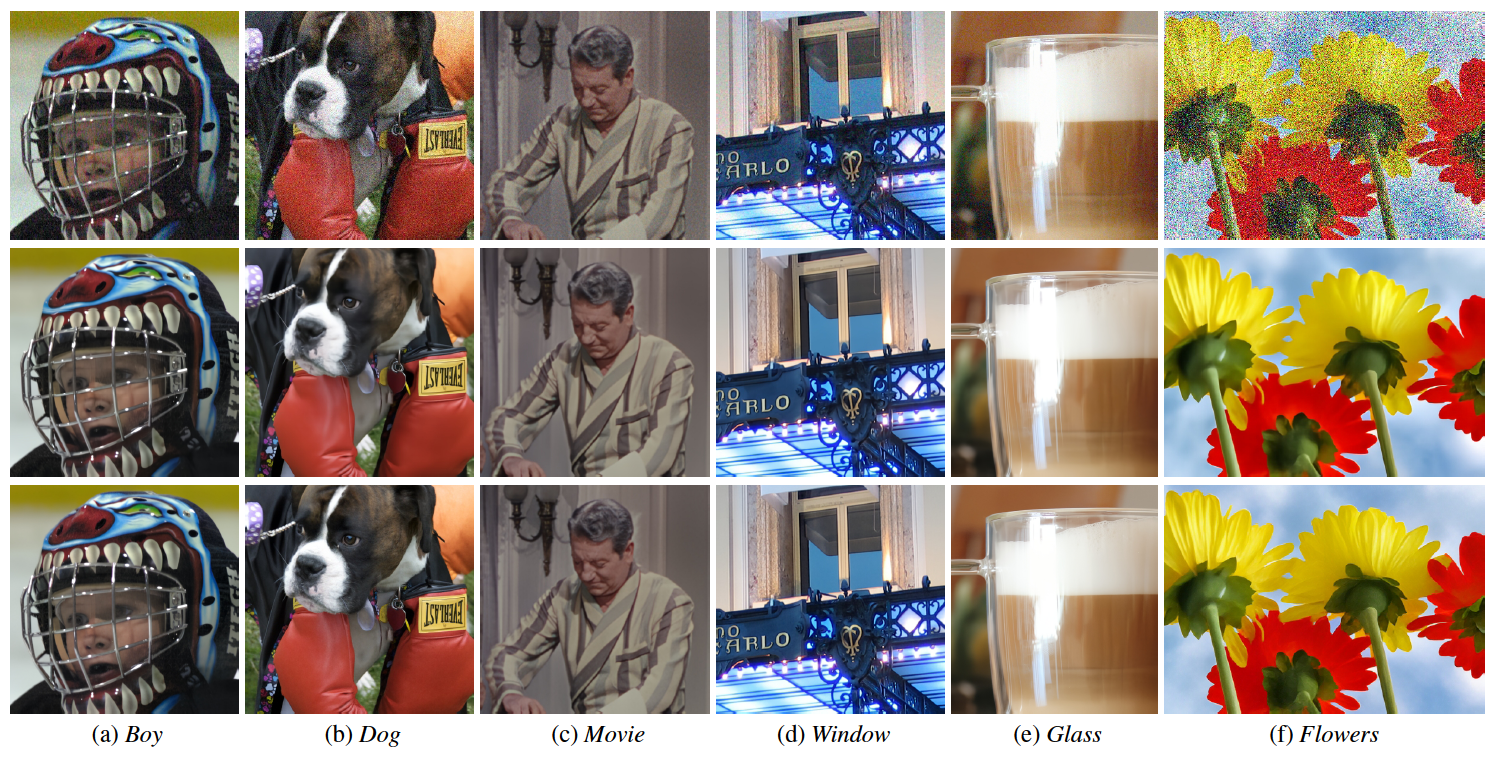[ArXiv Paper] [Online Demo] [Published Paper]
The following results are obtained by our SCUNet with purely synthetic training data! We did not use the paired noisy/clean data by DND and SIDD during training!
The architecture of the proposed Swin-Conv-UNet (SCUNet) denoising network. SCUNet exploits the swin-conv (SC) block as the main building block of a UNet backbone. In each SC block, the input is first passed through a 1×1 convolution, and subsequently is split evenly into two feature map groups, each of which is then fed into a swin transformer (SwinT) block and residual 3×3 convolutional (RConv) block, respectively; after that, the outputs of SwinT block and RConv block are concatenated and then passed through a 1×1 convolution to produce the residual of the input. “SConv” and “TConv” denote 2×2 strided convolution with stride 2 and 2×2 transposed convolution with stride 2, respectively.
Schematic illustration of the proposed paired training patches synthesis pipeline. For a high quality image, a randomly shuffled degradation sequence is performed to produce a noisy image. Meanwhile, the resizing and reverse-forward tone mapping are performed to produce a corresponding clean image. A paired noisy/clean training patches are then cropped for training deep blind denoising model. Note that, since Poisson noise is signal-dependent, the dashed arrow for “Poisson” means the clean image is used to generate the Poisson noise. To tackle with the color shift issue, the dashed arrow for “Camera Sensor” means the reverse-forward tone mapping is performed on the clean image.
Synthesized noisy/clean patch pairs via our proposed training data synthesis pipeline. The size of the high quality image patch is 544×544. The size of the noisy/clean patches is 128×128.
Try Replicate web demo for SCUNet models here
- Download SCUNet models
python main_download_pretrained_models.py --models "SCUNet" --model_dir "model_zoo"-
Gaussian denoising
- grayscale images
python main_test_scunet_gray_gaussian.py --model_name scunet_gray_25 --noise_level_img 25 --testset_name set12
- color images
python main_test_scunet_color_gaussian.py --model_name scunet_color_25 --noise_level_img 25 --testset_name bsd68
-
Blind real image denoising
python main_test_scunet_real_application.py --model_name scunet_color_real_psnr --testset_name real3
python main_test_scunet_real_application.py --model_name scunet_color_real_gan --testset_name real3
@article{zhang2023practical,
author = {Zhang, Kai and Li, Yawei and Liang, Jingyun and Cao, Jiezhang and Zhang, Yulun and Tang, Hao and Fan, Deng-Ping and Timofte, Radu and Gool, Luc Van},
title = {Practical Blind Image Denoising via Swin-Conv-UNet and Data Synthesis},
journal = {Machine Intelligence Research},
DOI = {10.1007/s11633-023-1466-0},
url = {https://doi.org/10.1007/s11633-023-1466-0},
volume={20},
number={6},
pages={822--836},
year={2023},
publisher={Springer}
}









